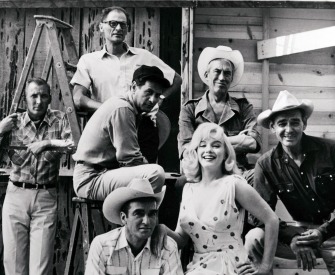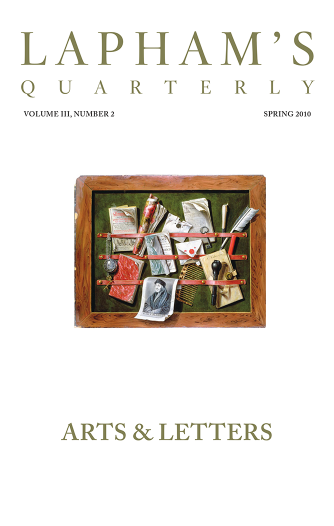Time hath, my lord, a wallet at his back,
Wherein he puts alms for oblivion,
A great-sized monster of ingratitudes:
Those scraps are good deeds past; which are devoured
As fast as they are made, forgot as soon
As done. Perseverance, dear my lord,
Keeps honor bright: to have done is to hang
Quite out of fashion, like a rusty mail
In monumental mock’ry. Take the instant way;
For honor travels in a strait so narrow,
Where one but goes abreast: keep then the path,
For emulation hath a thousand sons
That one by one pursue. If you give way,
Or hedge aside from the direct forthright,
Like to an entered tide, they all rush by
And leave you hindmost;
Or like a gallant horse fall’n in first rank,
Lie there for pavement to the abject rear,
O’er-run and trampled on: then what they do in present,
Though less than yours in past, must o’ertop yours;
For Time is like a fashionable host
That slightly shakes his parting guest by th’hand,
And with his arms outstretched, as he would fly,
Grasps in the comer; Welcome ever smiles
And Farewell goes out sighing. O let not virtue seek
Remuneration for the thing it was,
For beauty, wit,
High birth, vigor of bone, desert in service,
Love, friendship, charity, are subjects all
To envious and calumniating Time.
One touch of nature makes the whole world kin:
That all with one consent praise newborn gauds,
Though they are made and molded of things past,
And give to dust that is a little gilt
More laud than gilt o’er-dusted.
The present eye praises the present object.
From Troilus and Cressida. Written around 1601, Shakespeare’s tragedy has been said to contain references to the Earl of Essex, executed for treason earlier that year, who had been compared with Achilles. In the play, Ulysses, having maligned Achilles’ refusal to fight, organizes the commanders to pass by the former hero’s tent without acknowledging him, then reminds Achilles that favor may be regained with action. “The cry went once on thee,” Ulysses says, “And still it might, and yet it may again.”
Back to Issue





